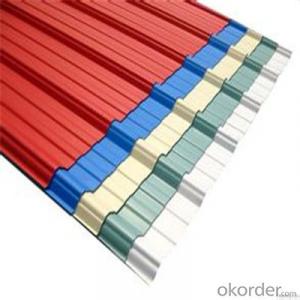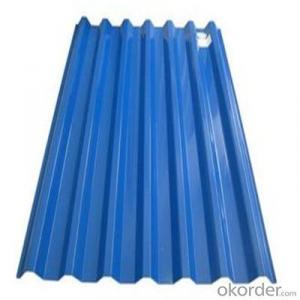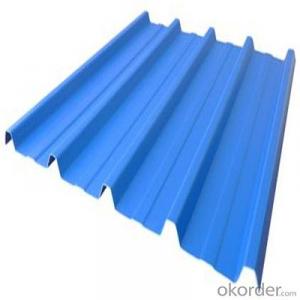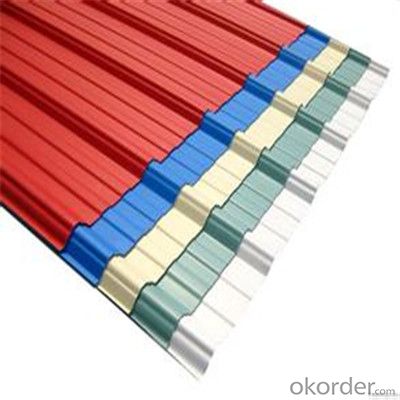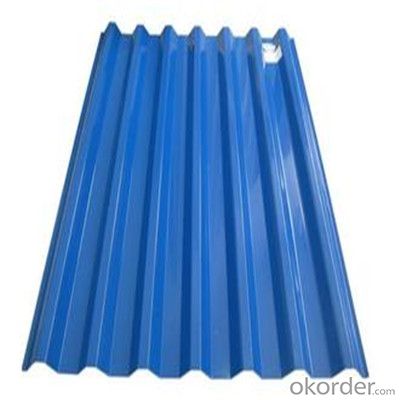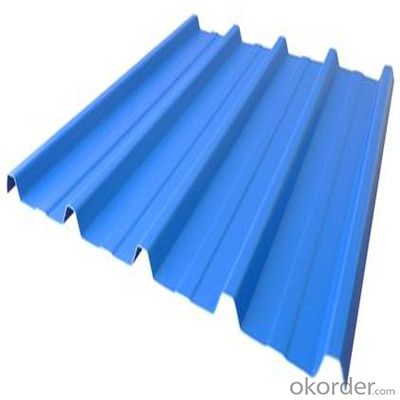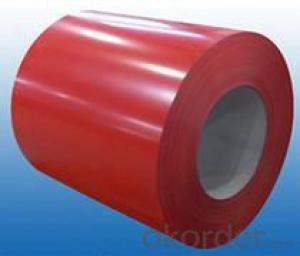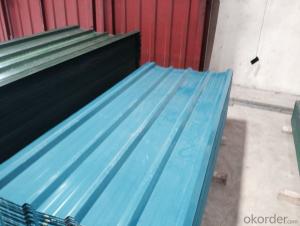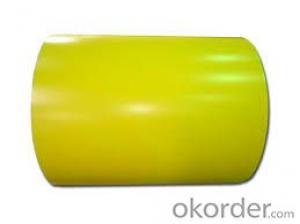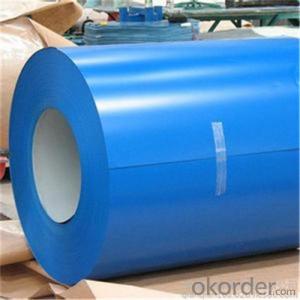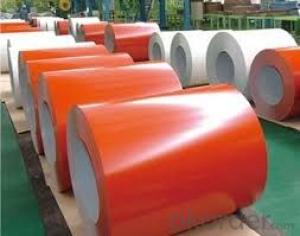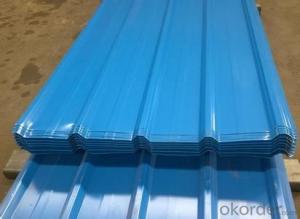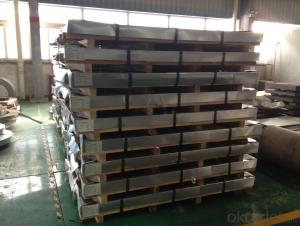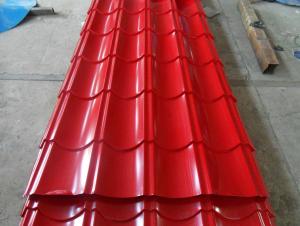Prepaint Galvanized Corrugated Iron Sheet Supplied from China
- Loading Port:
- Shanghai
- Payment Terms:
- TT OR LC
- Min Order Qty:
- 100 m.t.
- Supply Capability:
- 1000000 m.t./month
OKorder Service Pledge
OKorder Financial Service
You Might Also Like
Specification
Description of Corrugated Iron Sheet:
1. Hot-dipped galvanized
2. Color: All RAL color
3. Thickness: 0.23-1.0MM
4. Developed Width: 600mm to1200mm
Specifications of Corrugated Iron Sheet:
Standards: GB, JIS3312 and ASTM
Materials: SGCC, Q195-Q235B, SPCC, DC01, DX51D+Z and more
Thicknesses: 0.23-1.0MM
Widths: 600-1200mm
Zinc coating: 80 to 275g/m²
Features of Corrugated Iron Sheet:
Spangle: minimized spangle, zero spangle, regular spangle and big spangle
Surface treatments: Passivated (chromatic), oiled or HDG anti-finger treatment
Applications: industrial buildings, public buildings, storehouse halls, residential buildings, trade buildings, sport halls, exhibition buildings and offices
Images of Corrugated Iron Sheet:
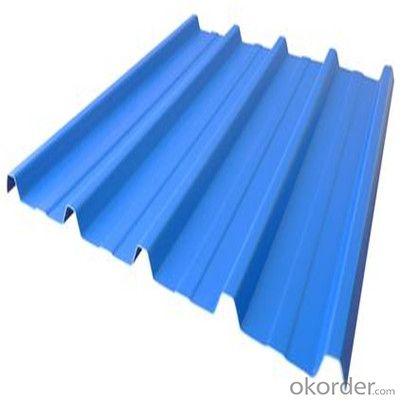
FAQ:
1. What's the Delivery port?
The main ports are Qingdao and Tianjin, we also can deliver to other ports to meet your requirements
2. How long is the lead time?
Delivery time: 45 days after order confirmed.
3. What payment term do you accept?
Payment: T/T or L/C at sight.
- Q: Can steel sheets be used for solar panel structures?
- Yes, steel sheets can be used for solar panel structures. Steel is a durable and strong material that can provide structural support for solar panels. It is commonly used for mounting frames, racking systems, and other components of solar panel structures due to its ability to withstand various weather conditions and provide stability.
- Q: What is the maximum thickness of steel sheets?
- The maximum thickness of steel sheets can differ based on numerous factors, including the type of steel employed, the manufacturing method used, and the purpose they serve. In terms of thickness, steel sheets can vary from a few millimeters to several centimeters. Nevertheless, for ordinary applications, the maximum thickness of steel sheets typically lies within the 20-30 millimeter range. To ensure the correct thickness of steel sheets, it is vital to take into account the particular requirements and specifications of the project or application at hand.
- Q: Can steel sheets be used for storage tanks?
- Yes, steel sheets can be used for storage tanks. Steel is a commonly used material for constructing storage tanks due to its strength, durability, and resistance to corrosion. Steel sheets are often welded together to form the tank's structure, providing a reliable and long-lasting storage solution for various liquids and gases.
- Q: Can steel sheets be recycled multiple times?
- Yes, steel sheets can be recycled multiple times. Steel is one of the most recycled materials in the world due to its durability and recyclability. When steel sheets reach the end of their useful life, they can be collected, melted down, and reprocessed into new steel products. This process can be repeated numerous times without compromising the quality of the steel. Recycling steel sheets not only conserves natural resources but also reduces energy consumption and greenhouse gas emissions associated with the production of new steel.
- Q: Who knows the wire width of the steel mesh?
- The general will take the smaller, because this is the amount of processing, product strength. The steel net is placed horizontally, numerical caliper perpendicular to the horizontal plane is measured, (caliper with scale side and parallel to the horizontal plane) JS level width.
- Q: Can the steel sheets be used for medical equipment?
- Yes, steel sheets can be used for medical equipment. Steel is a commonly used material in the medical industry due to its strength, durability, and resistance to corrosion. It can be used to manufacture various medical equipment such as surgical instruments, hospital beds, medical carts, and diagnostic machines. Steel sheets can be easily molded and fabricated into different shapes and sizes, making them suitable for specific medical equipment requirements. Additionally, steel is known for its hygienic properties as it can be easily sterilized, making it a suitable material for medical equipment that needs to be sanitized regularly.
- Q: What is the difference between a smooth and corrugated stainless steel sheet?
- A smooth stainless steel sheet is characterized by its flat and polished surface, lacking any ridges or patterns. It is commonly used in applications where aesthetics and cleanliness are important, such as kitchen countertops, appliances, and architectural designs. The lack of ridges allows for easy cleaning and maintenance. On the other hand, a corrugated stainless steel sheet has a wavy or ribbed pattern, resembling a series of parallel ridges or grooves. This design provides added strength and rigidity to the sheet, making it suitable for applications where structural integrity is crucial. Corrugated stainless steel sheets are commonly used in roofing, siding, and industrial applications where durability and resistance to wear and tear are important. In summary, the main difference between a smooth and corrugated stainless steel sheet lies in their surface texture and intended use. Smooth sheets are preferred for their aesthetic appeal and easy maintenance, while corrugated sheets offer enhanced strength and are commonly used in structural and industrial applications.
- Q: Can steel sheets be used for fencing applications?
- Yes, steel sheets can be used for fencing applications. Steel sheets are commonly used for fencing due to their durability, strength, and resistance to harsh weather conditions. They provide a sturdy and secure barrier, making them suitable for various fencing applications such as residential, commercial, industrial, and agricultural purposes.
- Q: Do steel sheets require any surface treatment before installation?
- Yes, steel sheets typically require surface treatment before installation. This is done to improve the durability and appearance of the steel, as well as to protect it from corrosion. The most common surface treatment methods for steel sheets include galvanization, painting, and powder coating. Galvanization involves applying a protective zinc coating to the steel, which helps to prevent rust and corrosion. Painting and powder coating, on the other hand, involve applying a protective layer of paint or powder to the steel surface. These surface treatments not only provide aesthetic appeal but also enhance the steel's resistance to environmental factors such as moisture, chemicals, and UV radiation. Therefore, it is recommended to apply suitable surface treatment to steel sheets before installation to ensure their longevity and performance.
- Q: What is the typical yield strength of steel sheets?
- The typical yield strength of steel sheets can vary depending on the grade and type of steel. However, on average, low carbon steel sheets have a yield strength of around 250 MPa (megapascals), while high carbon steel sheets can have a yield strength of up to 800 MPa.
Send your message to us
Prepaint Galvanized Corrugated Iron Sheet Supplied from China
- Loading Port:
- Shanghai
- Payment Terms:
- TT OR LC
- Min Order Qty:
- 100 m.t.
- Supply Capability:
- 1000000 m.t./month
OKorder Service Pledge
OKorder Financial Service
Similar products
Hot products
Hot Searches
Related keywords
